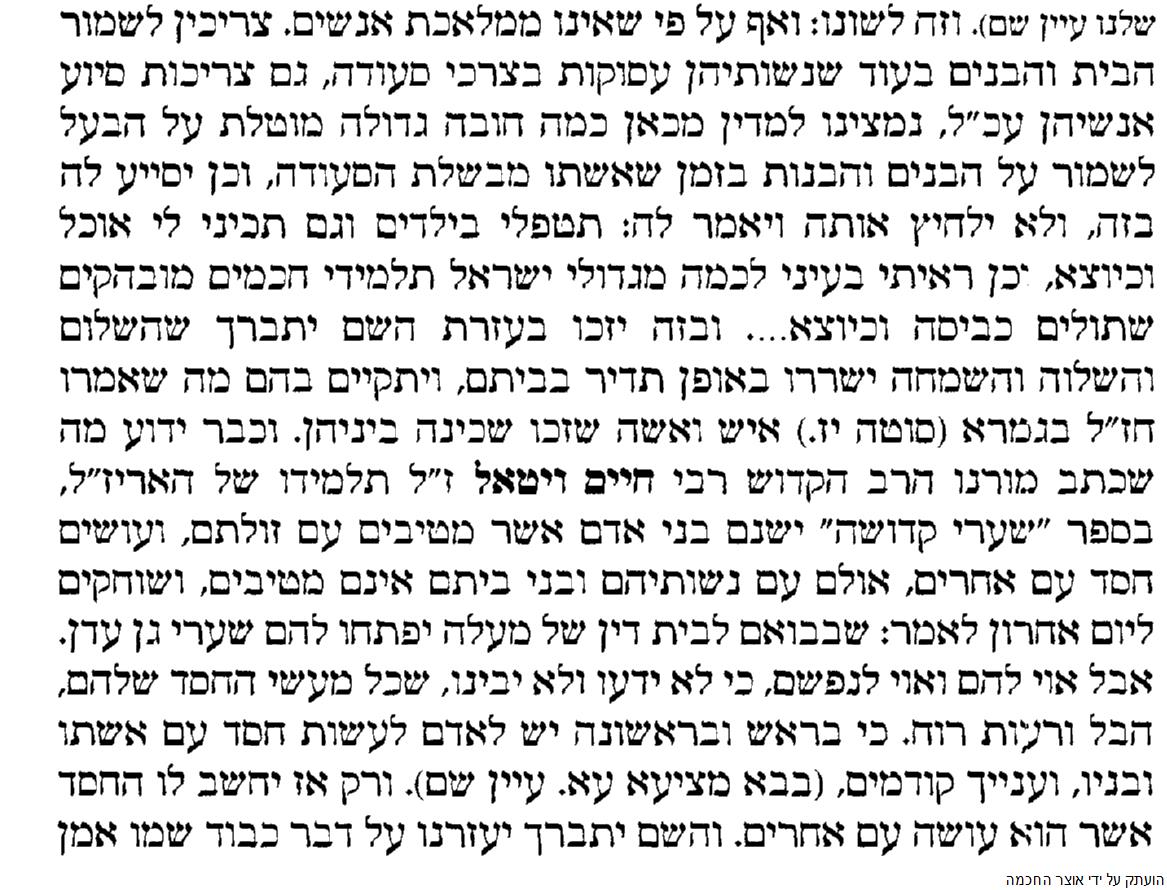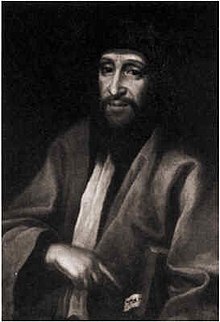(By Rabbi Yair Hoffman for 5tjt.com)
Rav Yaakov Emden (1697-1776), better known as the Yaavetz, was one of the Gedolei haAchronim. He lived in Altona, which was then a territory owned by the King of Denmark called Holstein Glueckstadt. Jews lived there because the taxes were significantly lower than nearby Hamburg.
There is a fascinating Yaavetz which many Jewish women would love to point out to their husbands. This is especially important to know before Pesach. It also applies all year round, however. [As an aside, it should also be noted that Rav Yaakov Emden predicted the holocaust hundreds of years before it happened – but that is for another time.]
It deals with the Gemorah in Megillah 23a. The Mishna explains that on Yom Tov only five people are called to the Torah. The Gemorah is trying to identify the author of the Mishna.
As part of this endeavor, the Gemorah cites a Braisah which explains that only five are called on Yom Tov and no more. Why is that the case? Because, the Gemorah explains, on Yom Tov – people come later and leave early. Rashi explains that they are busy with the meal preparations.
The Yaavetz asks a question on Rashi. Why would the preparing of the food affect how the men come to shul? Isn’t the food preparation generally the domain of women? He answers that the men are to be taking care of the children and watching over the household.
Many Seforim and Poskim point to this Yaavetz as an obligation to assist one’s wife during these times.

The author can be reached at [email protected]












5 Responses
Where does he write this? AUTHOR’S RESPONSE: In the hagaos
Thank you rabbi Hoffman,
Now I can be דן לכף זכות all the late comers 😉
Thank you, Rabbi. Another favorite of ours (Ashkenazim as well) is the Ben Ish Chai, who says that when a woman is nursing, that place is not considered a makom meschuseh and therefore she can also continue eating and need not worry about washing her hands if she touches that part of her body.
But back to Pesach, I learned somewhere but don’t remember where that the mitzvah of getting the chametz out of the house is on the man and so he should certainly be helping. And didn’t the Chazon Ish also say that men should help? Rabbi Chaim Pinchas Scheinberg, zt”l used to tell us, “Don’t turn your Pesach into a Tisha B’Av!”
And ladies, please remember: we are NOT the Korban Pesach!
Thank you, Rabbi Hoffman, for being kind enough to bring up this subject.
Thank you Rabbi Hoffman for pointing this out, it’s an important reminder for us men to do our part in helping for Yom Tov. And although the Yaavetz’s message is true that we should help our wives at home, his explanation in the Gemorah and Rashi is very difficult to understand as a true pshat.
1) the Gemorah said that on Yom Tov people come later than usual and leave early, Rashi explained why they came late because they have to work hard with the preparations of the yom tov meal. that sounds like they were actually preparing the food, not just plain baby sitting their kids so the wives can work.
2) the Gemorah later on mentions that on Shabbos people come to shul early and leave early, Rashi explained why they came early on Shabbos because they already have prepared all Shabbos meals before Shabbos and it’s nice to come to shul early to daven “Vasikin”. that means on Shabbos they davened at sunrise and had to be in Shul an hour before Netz which is around 5:30am. however on Yom tov they came later than than time because they had to help with Yom tov meal preparations. With that being said, how many women get up so early on Yom tov day to start preparing for the day meal? especially if they had finished eating their Afikoman by Chatzos which is around 1am and hadn’t made it to bed before 2am.
3) Are the kids really up that early in the morning that the men have to delay davening Vasikin in order to babysit?
4) According to the Yaavetz’s pshat it would make more sense to go to Shul early on Yom tov and daven Vasikin just like Shabbos in order to come back home early and help the wife with either watching the kids or actual preparations, and not daven later.
5) Even if this pshat was true that the men were watching their kids, it is still not enough time for the wife to do all meal preparations, it can take hours and hours as we all know.
Because of these questions I find it difficult to understand the Yaavetz’s pshat how it fits in the Gemorah and Rashi, and if someone has a pshat I would appreciate an explanation.
I myself (Laanius daati) understood the Gemorah and Rashi to mean that the meal preparations were done “from the night before” hence they had to delay their morning prayers and not daven at Vasikin but later.
Basically saying (in the name of rav Chaim Vital):
Charity starts at HOME!